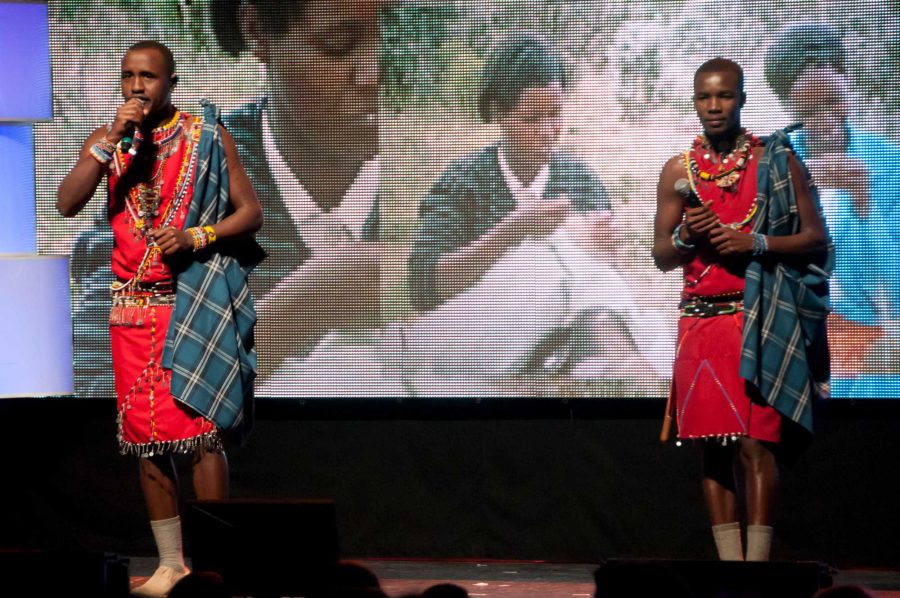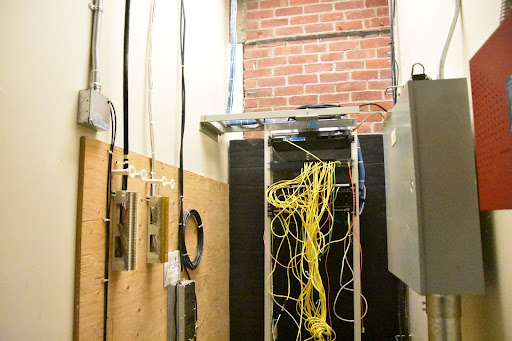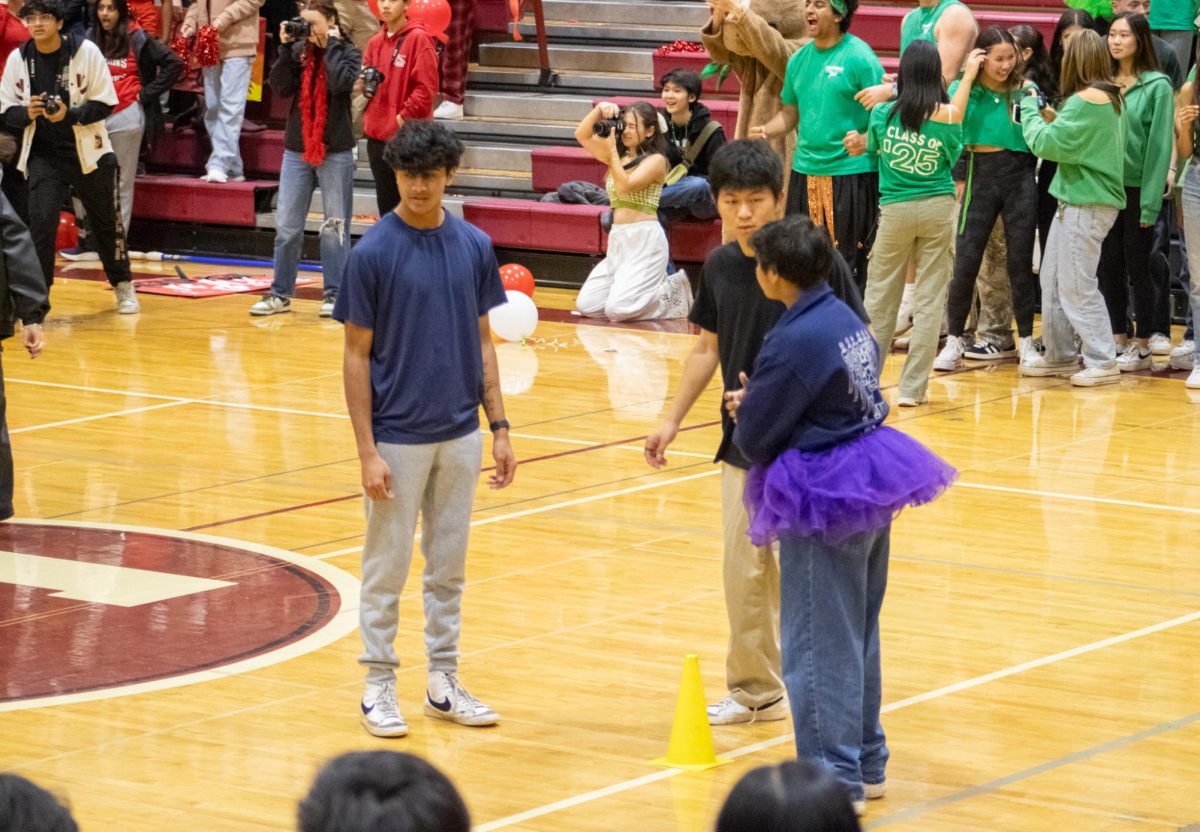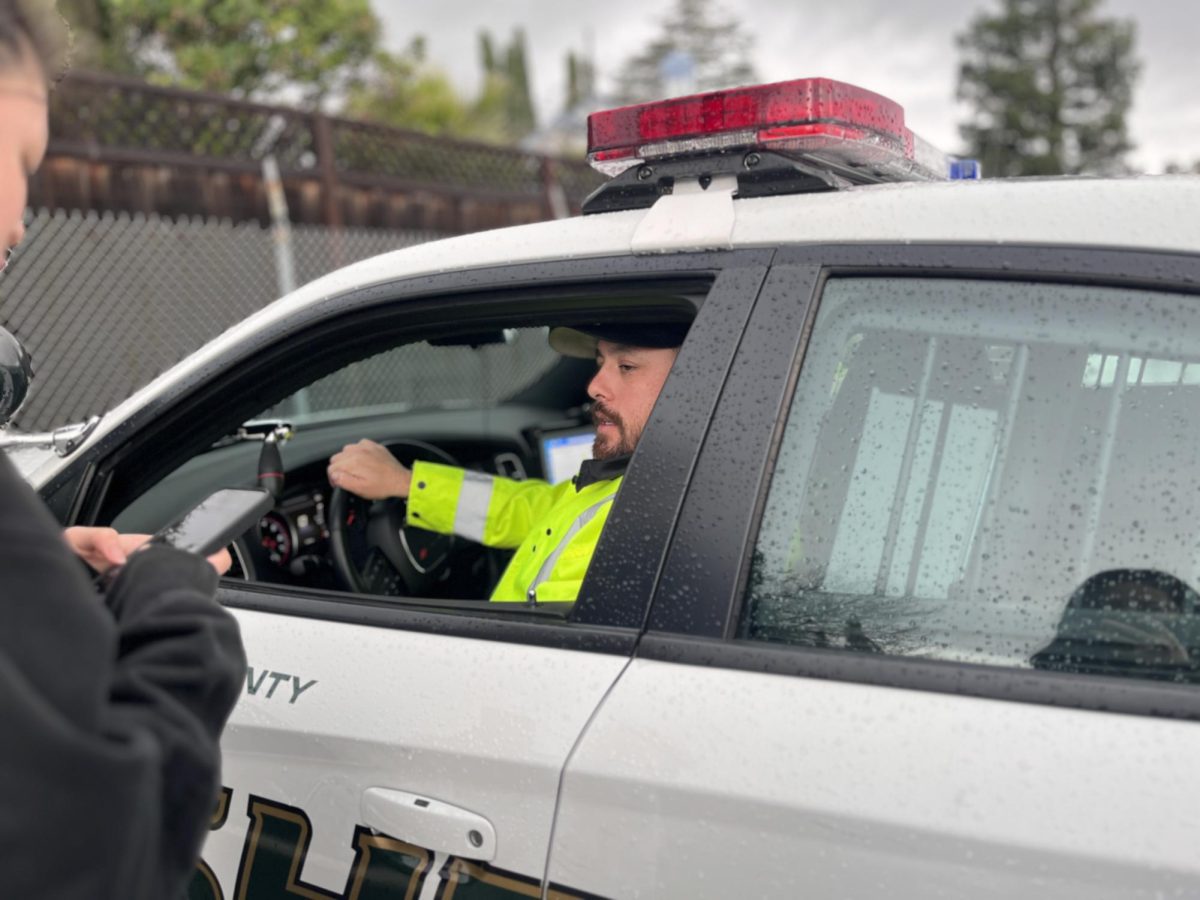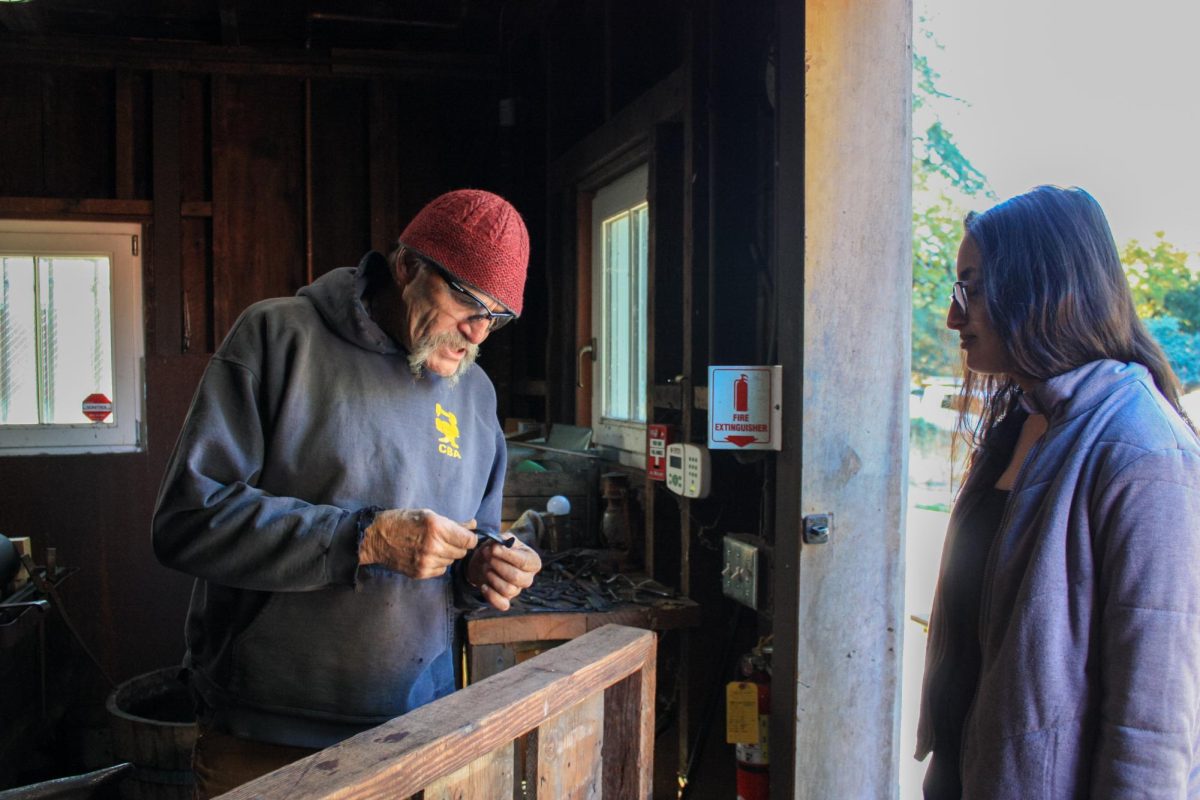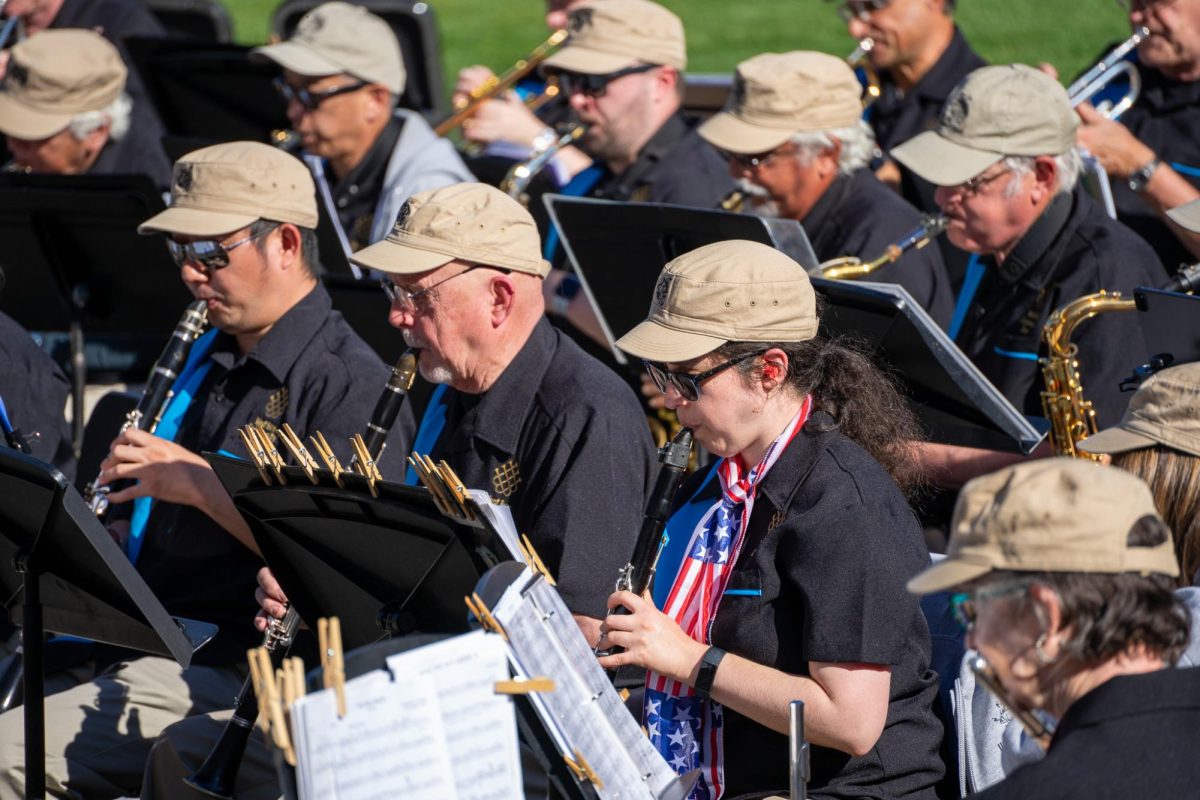On Nov. 20, Maasai brothers Wilson Meikuaya and Jackson Ntirkana shared stories of their fight for education to an audience of sophomores.
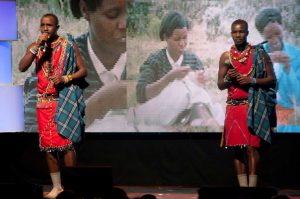
The audience laughed, 150 sophomores leaning forward in their seats to hear the story of two men who once walked six kilometers to school.
On Nov. 20, Wilson Meikuaya and Jackson Ntirkana met with World History, Core, and Studies classes in the auditorium during second period, where the two brothers introduced themselves as “appreciators of education.” Their presentation, which was not mandatory, remained available to sophomores on a rolling admissions basis until the auditorium was full.
As members of the Kenyan Maasai tribe, Meikuaya and Ntirkana shared the trials and tribulations of gaining an education in an impoverished country. They are two siblings who like In-and-Out, wield wooden clubs and just happen to be the first Maasai warriors to earn their bachelor’s degrees.
“They’re living history,” history teacher Nick Bonacorsi said. “It’s the best way to experience how the world changes.”
Aided by the non-profit organization Free the Children, the brothers urged all communities to participate in fundraising opportunities, depicting the hardships that once plagued their childhoods with a photo-centric PowerPoint presentation.
“The schools could be knocked down and we had no floor and no walls,” Ntirkana said, later encouraging participation in a coin-drive campaign that allows students to pay for cement bricks to be shipped to Africa. Overviews of their current projects were interspersed with short Swahili lessons and an explanation of hunting techniques.
“My favorite part was their stories,” sophomore Helen Chen said. “How they had to kill a lion to prove themselves worthy, and argue with their parents about going to school. They made me so much more aware of how we live.”
After the presentation, Chen and over 50 others lingered behind, approaching Ntirkana and Meikuaya with questions about visiting Kenya and contributing money. Reluctant to move on to fourth period, sophomores gathered by the stage and began to update their social media statuses with photos of their newfound friends.
One such message, posted on Facebook by sophomore Osher Fein, displayed a photo of the brothers and the heartfelt caption “I’m feeling pretty inspired and honored to have meet these wonderful people,” while others noted that the presentation was “unforgettable.”
Chen, who initially signed up for the presentation with low expectations, found herself unexpectedly moved and motivated to volunteer.
“A lot of people were talking about [the presentation.] It was so inspiring, so eye-opening,” Chen said. “We complain about school a lot, and they had to fight for it.”
Students scrambled to fill out interest forms for “Me to We” volunteer trips, in which Free the Children sends volunteers to help construct schools in one of eight rural countries. Pens exchanged hands, kids chatted about their summer plans and several were ready to call their parents right then and there.
“Should I go to Kenya or India?” sophomore Tatiana Wright asked.
“Both!” a classmate answered, as they both hunched over their forms.
A New Type of Warrior
Students admired the brothers’ red-checkered dresses and beaded gold collars, even gasping when Ntirkana drew a hunting spear during a weapons demonstration.
The Maasai were once initiated into their tribe through the ritual killing of a lion, but as lions became more and more endangered, the Maasai were banned from hunting lions by the government. Meikuaya and Ntirkana realized that this shift in hunting culture was an opportunity for their families to embrace the “modern world.”
“We were not allowed to go to school,” Meikuaya said. “They told us that school would steal away our culture. But we wanted an education. We saw the value in learning.”
The brothers recounted harrowing escapes from the police and long hikes to school, where they were given three full meals and learned six languages. Droughts and dust storms plagued their lives, as shelters were often destroyed by the weather. Despite the threat of starvation, as well as their parents’ disapproval, Meikuaya and Ntirkana became the first in their tribe to earn an education past high school.
“We were some of the last Maasai to kill the lion and be a warrior like that,” Meikuaya said. “We were honored for it.”
The brothers strive to reinvent the warrior model. They encouraged all 42 of their siblings and step-siblings to pursue an education, ensuring that all Maasai children, whether male or female, would soon become warriors by a different method: by going to college and earning a degree. Education now represents unity between all communities, the great enabler of connection and communication. Traditional red gown, gold ornaments and hand-carved clubs: the adornments of a truly courageous student.
Being the Change
“I loved hearing them talk about their education,” Chen said. “They were really appreciative of it, and they wanted to help their community. Not complaining, but inspiring.”
To Chen, the brothers’ empathy and loyalty toward their Kenyan community, as well as their efforts to educate villages, helped topple the negative MVHS stereotype, in which kids are reputed to compete with each other instead of propelling each other towards a common goal.
“I think this [presentation] was one thing that united us,” Chen said. “We all were so interested and wanted to ‘be the change.’”
The presentation, though optional, was recommended to all sophomore students, who are currently studying the cultures and provinces of Africa. Ntirkana and Meikuaya were invited with the hopes that history students would gain interest in African culture, but according to Chen, the brothers accomplished much more than teaching kids how to pronounce “Hakuna Matata.”
“I think that it wasn’t just learning and listening,” Chen said. “[It] became more about action, and about wanting to get out and do things.”
Assistant Principal Mike White has already signed several students up for the annual Free the Children “We Day,” an international event in which teen leaders and social activists gather in the spring to hear from some of the world’s revolutionaries and humanitarians. “We Day,” which is broadcasted on television and radio, is set to take place in Vancouver.
“We want to make the change,” Meikuaya said. “We are so happy to be here, to see people listen and sing with us.”
They urged students to applaud their teachers at the end of the presentation, concluding the morning not with a goodbye, but with a cheerful “Jambo.”
“Jambo!” Meikuaya said, waving at the wildly-applauding audience.
“Jambo,” students called back, chanting the Swahili word for “hello.”
















